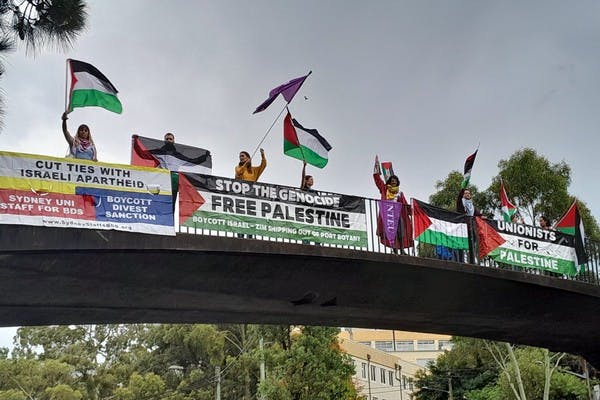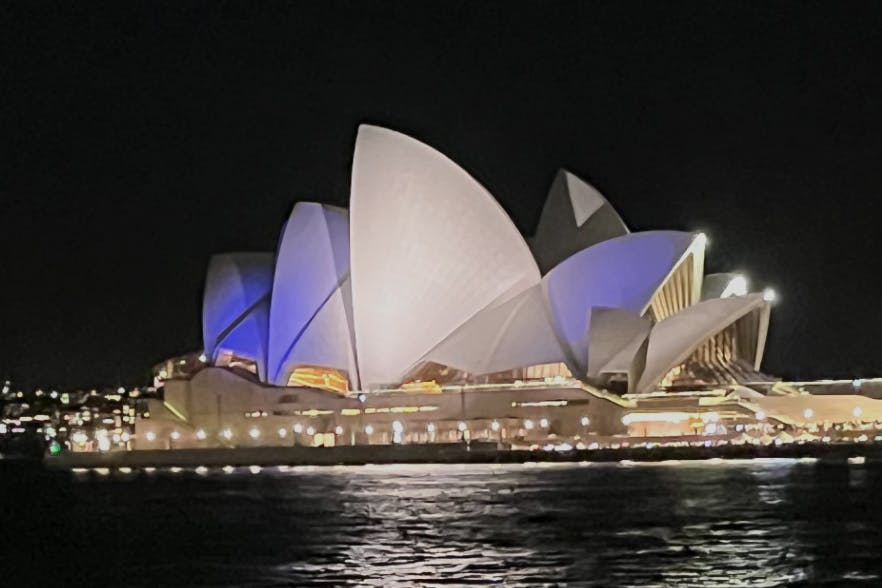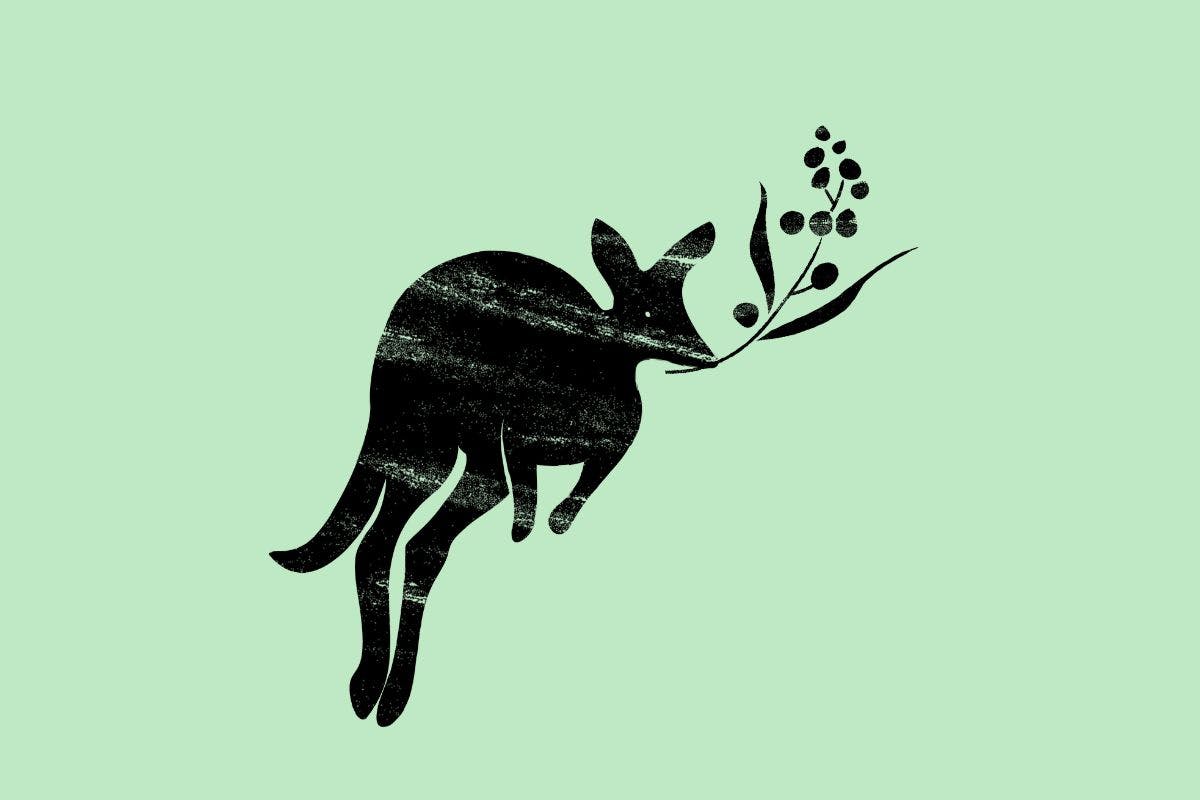Published: 14 January 2024
Last updated: 19 March 2024
Vic Alhadeff meets Teresa Pirola, one of the few voices in the Australian Catholic church who has spoken out against her colleagues' silence.
Teresa Pirola has a clear picture in her mind as to what should have happened on October 8, 2023.
“October 7 occurred during a global synod of bishops convened by the Pope at the Vatican,” she says. “The Catholic world was watching. Given the severity of what had happened, the Holocaust and antisemitism, and the Catholic Church’s connection with that history, this was the Church’s moment to step up and enact its promise of ‘Never again’.
“What was needed was for Pope Francis to interrupt the synod and issue a statement condemning the Hamas massacre in the strongest possible terms and acknowledging the traumatic memory of Nazi pogroms.
“Then he could have made the 10-minute journey to Rome’s Great Synagogue and expressed his condolences to the Chief Rabbi, standing shoulder-to-shoulder before the cameras. It would have beamed around the world like the iconic photograph of Pope John Paul II at the Western Wall in 2000 and it would have given the lead to Catholic bishops to do the same. It would have modelled the synod’s theme, which was all about ‘walking together’.
“But he didn’t do that. He missed that critical moment to use his words and papal body language to make a powerful statement against antisemitism and its most horrific manifestation since the Holocaust. It could have been a history-making moment, dramatically confronting the Catholic faithful with their post-Holocaust commitment and duty of care owed to the Jewish people. That failure in leadership has affected everything since.
“I have always been a great supporter of Pope Francis’ pastoral approach,” adds Pirola. “But in the Israel-Hamas conflict the Catholic response has missed the mark badly, at terrible cost to the Jewish people and to the Church’s moral credibility.”
Pirola who has a doctorate in theology from the Sydney College of Divinity, is a a Sydney-based freelance writer and faith educator with a special interest in Jewish-Christian relations. She has many years of experience working in Catholic schools and diocese forums.
What was needed was for Pope Francis to interrupt the synod and issue a statement condemning the massacre… But he didn't.
“I believe there is concern in the Catholic world at what is happening, not only for Palestinians but for the Jewish community,” she says, “but despite years of education and interfaith work, the understanding has not gone deep enough. The water hasn’t seeped far enough beneath the surface.
“The signs were there as far back as the 1965 Nostra Aetate document (which enshrined a greater dialogue and respect toward the major non-Christian religions of the world). We speak now about what a great achievement it was. It fundamentally changed Catholic-Jewish relations, but it had to fight to get onto the table at the Second Vatican Council; therefore follow-up work was going to be crucial.”
That said, “good things did happen”, Pirola notes. “Textbooks were changed and interfaith bodies set up. But the work of consolidation in Australia hasn’t been consistent. The effort dissipated and bishops have focused on other priorities. Meanwhile, a simplistic anti-Israel narrative has taken hold of social justice discussions like water dripping on stone, becoming the new antisemitism, and this has infected Catholic attitudes. There are dioceses where interfaith work has become ‘tick a box’, rather than a deep, focused effort on transformation.”
A month after October 7, the Australian Catholic Bishops Conference met, affording it an opportunity to condemn the assault, albeit belatedly. “I was shocked,” declares Pirola, who had been pressing for a response. “It issued a bland statement, expressing generic concern about suffering and peace, but not a word about the massacre, hostages or antisemitism.
In contrast, Melbourne’s Archbishop Peter Comensoli issued a clear statement the next day – the only Australian Catholic leader to take a strong stance against the unprecedented wave of antisemitism. He requested that his statement be read in his parish churches, which is what was needed around Australia.”

As part of her efforts, Pirola devised an online prayer initiative in support of the hostages. When institutional church support waned, she persisted in a private capacity, joining forces with broadcaster Julie McCrossin in making a video which drew a link between Kristallnacht and October 7.
“Why am I prepared to speak up? It gets inside me,” she explains matter-of-factly. “It’s partly inexplicable, but I identify three defining factors. Living in the US in my youth, we had great Jewish neighbours, I played with Jewish kids and my father’s mentor in medical research was a Belgian scientist who fled the Holocaust. Back in Australia, my siblings and I were shocked to hear `Jew’ used in the playground as a derogatory term. We would discuss it at the dinner table. It was my first taste of antisemitism.
“Then a lightbulb moment occurred when I was 18. I heard a Jesuit priest say we cannot understand who we are as a Catholic people without turning to the Jews. I knew he was right. I understood it to mean our faith is not just about principles and beliefs, but about community and relationships which are anchored in Christianity’s Jewish roots.
Pirola devised an online prayer initiative to support the hostages. When church support waned, she persisted in a private capacity.
“The third formative factor happened when I undertook a Master’s course in Jerusalem on Torah. It changed my life. It shaped the direction of my studies when I returned home and became involved in interfaith work. I returned to Israel seven times and took Catholic groups there. A friend said I’d never be Catholic the same way again. He was right, evidenced by the fact that I regularly attend Shabbat services!”
Pirola was one of six people invited to pin symbolic yellow ribbons to a Magen David at a Sydney vigil for the hostages. She wrote a poignant article on hearing family members of the hostages speak at North Shore Synagogue. “Each represents an individual family,” she wrote. "Yet they belong to one great family – the Jewish people – united as they confront the devastating aftermath of October 7. `It’s like being on Schindler’s List,’ says one, referring to the negotiations. ‘Who will live and who will die’?”
After reprising heartbreaking details about the delegation’s loved ones, her article concluded: “Sitting amidst Sydney’s Jewish community, it is obvious why they don’t take to the streets with hate slogans. Their resilience is manifest in the dignity of their stance that affirms their identity, their relationships, their faith. Despite the grief, this courageous delegation imparts no words of hatred.
“They could with justification brand their enemies with hate-labels of genocide, rape, torture, mutilation and kidnapping. But they don’t. Incredibly, their words are focused on gratitude for those who have come to hear them and the worldwide Jewish family supporting them.”
I’m at a loss to explain the silence. It has shocked me to the core. I’ve been grief-stricken since October 7.
Addressing the launch last March of an interfaith document of the Australian Catholic Bishops, titled Walking Together,, Pirola again demonstrated her capacity for understanding. “A document like this is only as good as the difference it makes on the ground,” she said. “How is it that we Catholics can affirm the belonging First Nations Australians experience to land, yet ignore the Jewish sense of belonging to land which is every bit as spiritual and historical and millennia-long?
“No devout Catholic can turn a blind eye to the searing history of Christian anti-Judaism, its links to the Holocaust and the mobilisation of tropes by present-day extremists. How do we call our people to face this darkness in our Christian story without crushing them with guilt? How do we approach the task sensitively without courting insensitivity towards our Jewish friends, leaving them to fight their battles against antisemitism alone which, in light of our history, amounts to yet another form of betrayal?
“These are pressing questions which we need to lean into. Even where clear-cut answers elude us, that needn’t stop us asking the questions, much less `living the questions’, with honesty and courage.”
October 7 “required the strongest response from the Catholic Church”, states Pirola emphatically, “because of our history, our culpability in the Holocaust and centuries of spreading anti-Jewish ideas, and also in light of 60 years of positive relationships since Nostra Aetate. I’m at a total loss to explain the public silence. It has shocked me to the core. I’ve been grief-stricken since October 7.
“I feel the bewilderment of the Jewish people, especially those who have invested their lives in interfaith harmony. I can’t explain why more Catholics don’t feel their grief. I wish I could.”
Teresa Pirola is author of Catholic-Jewish Relations: Twelve Key Themes for Teaching and Preaching, published by Paulist Press.




